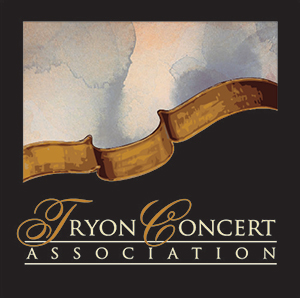We once again present what has become a popular Clef Notes feature— our blogger, Rex Gallatin interviewing Program Committee member Kymric Mahnke about the upcoming Tryon Concert Association concert on November 15, 2018, featuring the Juilliard String Quartet.
Rex: Well Kym, we are already well into another Tryon Concert Association season. I must say that this year’s lineup is just incredible. No sooner have we been wowed by The Canadian Brass than we have the famous Juilliard String Quartet coming on Thursday, November 15th.
Kym: Yes Rex, the stars really lined up for us this year. We are particularly pleased that we are able to bring the Juilliard String Quartet to Tryon for the first time ever! This is such an important event.
Rex: Kym, why do you say, “important.”
Kym: Just this, Rex. You and I are close to the same age. When we were young music students back in the 1970’s, you remember that no quartet in the United States was as influential as the Juilliard String Quartet. Not only were they unsurpassed in their performances of the standard string quartet literature, but, almost alone, they championed performances of important 20th century composers, and especially quartets of their contemporaries. Award winning recordings of these performances were part of this as well.
Rex: Can you give our readers some examples?
Kym: Sure. The quartet championed works of composers such as Milton Babbit, Elliott Carter, and Henri Dutilleux, to name just a few. Not traditional Sunday afternoon listening, that is for sure. These were works of great complexity, requiring the highest levels of musicianship to perform. Not only that, the quartet championed works of 20th century composers from the earlier part of the century that had not really gotten their due. A perfect example are the six string quartets of Bela Bartok, the great Hungarian composer who spent the last years of his life just up the road in Asheville trying to regain his health. The Juilliard Quartet’s famous recording of those quartets in 1966 (for which they won a Grammy, by the way) did more than anything else to establish them firmly in the repertoire. It is no exaggeration to say that Bartok’s quartets are now generally acknowledged to be the greatest works written in that genre since Beethoven.
Rex: When people speak of the Juilliard Quartet of that time, I think most people still think of Robert Mann, its 1st violinist. He was such an important figure in American music.
Kym: Rex, I could not agree with you more! Without a doubt, he was in the first rank of influential American musicians of his time; in his own way, as influential as, say, Aaron Copland, and Leonard Bernstein. Perhaps no one championed the works of American composers more than Robert Mann, not only as a performer through the quartet and as an individual violinist, but also as a conductor. He was an important composer as well. An amazing man.
Rex: Yes, when speaking of the legacy of the Juilliard Quartet, one can only retreat! But what about today? What kind of experience can our subscribers expect from the quartet in its current makeup?
Kym: This event on November 15th is going to be fascinating in so many, many ways. First, the most recent additions to the quartet, cellist Astrid Schween, and 1st violinist Areta Zhulla, are the first women, ever, to play as members of the Juilliard String Quartet. The result has been spectacular. The quartet is in demand everywhere. Four days after playing in Tryon, they are giving a concert at Lincoln Center in Alice Tully Hall. Wigmore Hall in London, The Hague, and The Kennedy Center are among the venues they are playing in coming months. If you check out their homepage, you can view their concert schedule— very, very impressive. There is little doubt that the quartet’s current members can’t help but be influenced in the most positive way by the quartet’s incredible legacy. From every indication, they are taking this legacy to even greater heights.
Rex: What about the music we are going to hear them perform in Tryon?
Kym: Rex, we are going to have the good fortune to hear three of the greatest string quartets ever written. Haydn’s String Quartet, Op.77 No. 2 is an iconic example of Viennese Classicism, and is studied by music students everywhere. There is no better example of Haydn at the height of his powers, with every instrument having an important role. I had mentioned the 20th century Hungarian composer, Bela Bartok, earlier. The Juilliard Quartet is going to perform Bartok’s String Quartet No. 3. It is a single-movement multi-sectional work, characteristically weaving Bartok’s love of central European folk tunes into a taut fabric of yearning that yields to driving rhythm filled with glissandi, strings slapped with the back of the bow, and other technical novelties that are always at the service of the musical ideas. A great work. Finally, they will end with Beethoven’s Op. 59 No. 2, known as the 2nd “Razumovsky,” named after the Russian ambassador to Vienna at the time who commissioned their composition from Beethoven. The Razumovsky Quartets are the first time we find Beethoven writing string quartets in a more “public” style. The works are longer, technically much more challenging than what he had written before, and more brilliant. When the 1st violinist of the quartet that Beethoven had in mind to perform the Razumovsky quartets, Ignaz Schuppenzigh, complained that they were impossible to play, Beethoven answered with his now famous response. “Do you believe that I think about your miserable fiddle when the muse strikes me?”
Rex: Well, this is a concert not to be missed. I doubt there will be an empty seat in the house!
